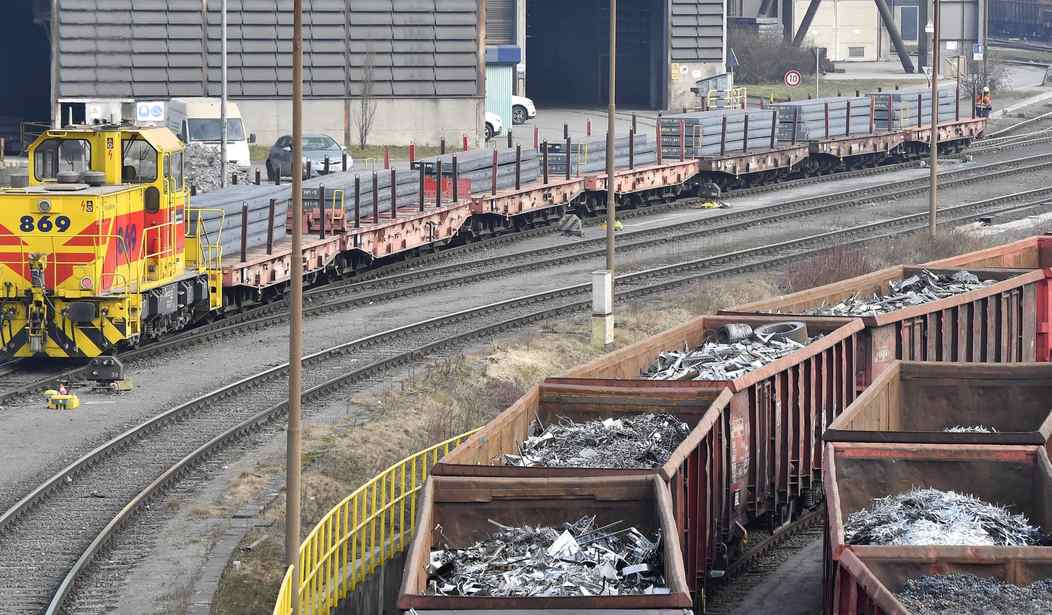WASHINGTON – The price of steel and aluminum products domestically is “likely” to increase as a result of the Trump administration’s new tariffs on steel and aluminum imports and the “industries themselves will see higher prices,” according to an expert at the Atlantic Council.
The European Union accounts for 21 percent of U.S. steel imports, Canada is 18 percent and Mexico is 9 percent. On aluminum, Canada is 41 percent, the EU is 7 percent and Mexico is 2 percent. The tariff on steel is 25 percent and the tariff on aluminum is 10 percent. Treasury Secretary Steve Mnuchin has reportedly encouraged President Trump to exempt Canada from the tariffs.
“This is a really big deal for, not only for the direct import of U.S. steel and aluminum but also for all of the products that get produced with U.S. steel and aluminum,” said Jason Marczak, director of the Adrienne Arsht Latin America Center at the Atlantic Council, during a recent conference call.
“I don’t see who really gains. I think maybe in the short term there might be some gains from the U.S. steel industry, but the problem is the U.S. steel industry doesn’t even have the capacity to actually produce the extra steel that the U.S. will require with the decrease in imports from the EU, Canada and Mexico,” he added.
Marczak continued, “The price of steel and aluminum products will likely increase. The demand for some of the imported goods facing those tariffs is likely to decrease. You’ll see an increase of not only the price of steel and aluminum products, but also the domestic price of those products will increase and the industries themselves will see higher prices.”
Marczak predicted that companies would pass on those tariffs by “baking” them into the price of their products.
“The companies aren’t going to take a loss, so U.S. companies and consumers will pay a higher price for those products,” he said.
Marczak noted that President Reagan was the last president to utilize Section 232 of the Trade Act, which gives the president power to act unilaterally if national security is at stake, to impose tariffs on imports.
“It’s been 35 years since 232 has actually been used and, fast forward, and I think not surprisingly, the final reports the Commerce Department submitted to the president in January of this year concluded that the steel and aluminum imports were threatening national security,” he said.
Bart Oosterveld, director of the Global Business & Economics Program at the Atlantic Council, said the tariffs would “benefit a few at the cost of many.”
“If you are still working in Youngstown, Ohio, and your plant shut down a few years ago and it reopens, you have your job back and it make you happy and everybody else’s prices for a variety of things from cars to cameras to tractors for the farmers go up slightly – but not to the degree that will make people change their vote,” he said.
Oosterveld said there is “confusion and anger” in Europe surrounding the Trump administration’s use of the “national security argument” to make the case for the tariffs.
“You don’t really expect that argument to be used against long-term allies,” he said. “In the background, in Germany, there’s concern about how this might affect the car industry over time.”
Marczak said that Canadians “overall” share Canadian Prime Minister Justin Trudeau’s “outrage” over the tariffs.
“It’s similar with Mexico, too. I mean, Mexico is an incredible ally of the United States, a national security partner of the United States,” he said. “For both of our North American allies, this is really seen as an affront. Justin Trudeau announced a dollar-for-dollar retaliation and he announced a comprehensive list of countermeasures.”
Marczak listed some of the U.S. products that Canada’s retaliatory tariffs target.
“Everything from whiskey, chocolate, candy, strawberry jam, pizza, quiche, licorice, Hershey’s Kisses, mattresses, sleeping bags, playing cards, ballpoint pens, paper products and also sailboats and motorboats,” he said.
Marczak explained that Mexico’s retaliatory measures target some industries that were part of Trump’s base in the 2016 election.
“Lamps, pork legs, shoulders, sausages, apples, grapes, blueberries, cheeses – so really a pinpoint retaliation,” he named.
According to its official website, the Atlantic Council has “administered programs to examine political and economic as well as security issues, and to cover Asia, the Americas and other regions in addition to Europe. All its programs are, however, based on the conviction that a healthy transatlantic relationship is fundamental to progress in organizing a strong international system.”









Join the conversation as a VIP Member